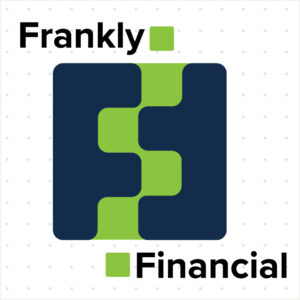Thought Leadership
Andy Watts Reveals The Financial Advice No One Taught You but Should Have

The Financial Advice No One Taught You but Should Have
By Andy Watts
We all grow up with certain beliefs about money. Some we hear from our parents. Others get passed around like conventional wisdom. But not everything we’re told is true.
For example:
- “Credit cards are bad.” (Not if you know how to use them.)
- “Renting is throwing money away.” (Not if it gives you flexibility or saves you from buying at the wrong time.)
- “You have to be rich to invest.” (False. You just need to start.)
- “Budgeting is about cutting back.” (It’s about choosing what matters most.)
In my Financial Literacy blog series, we’ve dug into these kinds of myths and offered alternatives worth considering. Today, National Financial Awareness Day, I want to recap some of those takeaways and invite you to explore the full series if you haven’t already.
Ultimately, what you don’t know can hurt you when it comes to your finances. But also, what you know can be transformative.
1. Know what you actually make
Do you understand the difference between gross pay and take-home pay? Or how bonuses, commissions and benefits factor into your overall compensation? If you’re making decisions based on your salary alone — and not the real number that hits your bank account — you’re operating with only part of the picture. Read more: Understanding What You Make and Budgeting for It
2. Set a goal. Commit to the plan.
Vague goals like “I want to save more” rarely work. The people who make financial progress set specific targets — like paying off $5,000 of debt in six months — and then build a system to track and automate that plan. Think of your financial life like a GPS: You need to plug in a destination to chart the right path. Read more: Set a Goal and Commit to the Plan
3. Don’t wait to invest
One of the biggest myths out there is that investing is complicated or risky, so you should wait until you “know more.” But knowledge often comes from doing. You don’t need to be an expert to start investing. You just need to start. Time is your most valuable asset; the earlier you begin, the more powerful your returns can become. Start with simple investment options and build from there. Read More: Top 3 Things You Need to Know as a New Investor
4. Diversify everything
Diversification is one of the most reliable ways to reduce risk and increase long-term stability. That means spreading your investments across different asset classes or investment types (stocks, bonds, etc.), industries and even time horizons. But diversification isn’t just for portfolios. You can apply the principle to income streams, your personal skill development, and even how you manage debt. Read more: The Power of Diversification in Financial Freedom
5. Let compounding interest do the heavy lifting
If you haven’t yet grasped the power of compounding, now’s the time. It’s the closest thing to “free money” most of us will ever get: interest earning interest on interest over time. But it only works if you give it time to work. That’s why starting early is more important than starting big. There is a massive multiplier if you start early, even with smaller amounts Read more: The Power of Compounding Interest
6. Optimize along the way
Financial literacy isn’t a one-time thing. It’s an ongoing practice. Every six months or so, I recommend doing a mid-year financial health check. Are your goals still aligned with your priorities? Has your spending changed? Are you maximizing your employer benefits or tax opportunities? Read more: Time for Your Mid-Year Financial Health Check-In
Two timeless principles to end on
- Don’t spend more than you make. Sounds simple, right? But it’s one of the hardest habits to master — and one of the most important. The ability to live below your means is what gives you freedom, flexibility, and peace of mind.
- Small changes can equal big wins. Financial transformation doesn’t have to mean overhauling your life. Round up your savings transfers. Cook one more meal at home each week. Cancel a forgotten subscription. These are the kinds of habits that accumulate over time, and the best part is, they’re doable and really not that hard to accomplish.
If you’ve made it this far, congrats! You care about your financial future, and that’s the first step. You can do this, just stay committed and disciplined. I invite you to explore the Frankly Financial series on my LinkedIn page. Whether you’re starting from scratch or fine-tuning what you already know, the goal is the same: Build financial confidence and put your money to work for the life you want.

Frankly Financial
by Andy Watts, Executive Vice President & Chief Financial Officer
Subscribe to Andy’s Frankly Financial newsletter on LinkedIn and see his latest articles here.
